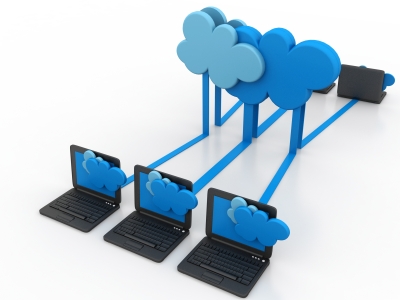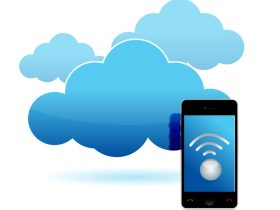If you’ve been curious about the cloud, consider email your gateway drug. It’s good enough to get you hooked and wanting more.
Technology professionals say outsourcing your business email to remote servers is easy. Its advantages include the ability to grow your overall productivity, reduce your costs and improve your company security. Then, once you’re comfortable with a cloud-based email system, you can start experimenting with advanced cloud features such as file transfers, database storage and project management or maybe even creating your own private cloud.
Easy-to-use services can help create and manage email programs and let you customize a system for your company. Here’s why this cloud-based approach to email is recommended:
- Professionalism:
Would you have more confidence in a company where everyone has an individual Gmail account or everyone has a company email account? You’ll likely say the second choice, which shows you the usefulness of having your own email host to instill that confidence in your clients. You can create your own internal email server or pay a little for a dependable business email hosting service.


- Security:
- Flexibility:
- Fewer IT Responsibilities:
The cloud offers innovative protections. Since you won’t have an actual physical server storing all your email data at your workplace, you can minimize hacking attacks, and equipment such as laptops won’t be considered security risks. Laptops or mobile devices will now be simply tools to access the company’s password-protected data on the cloud from anywhere, without any vulnerable data living on the machine itself. The same is true for anything that could destroy your server and knock your company out of commission. During Hurricane Sandy, many General Services Administration employees continued working since the agency’s email system was a cloud-based one. Otherwise, employees would have had to suspend operations or work with less efficiency since some GSA locations were damaged.
To continue with our Hurricane Sandy example, the GSA employees were also able to be more responsive. They could work from home, remote locations or the office. Other companies can also find similar positives. Service techs can do all their reporting from the field, and managers can create online forums where staff can share emails about certain topics. Remote email can unite people spread out geographically, so that employees throughout the country (or the world) can collaborate.
You’ll still need the bright guys or girls of your IT department around, as long as they’re experts in configuring, stabilizing and securing networks. But the traditional IT tasks of connecting wires, configuring stacks of hardware or putting size limits for email accounts are becoming less of a priority.
Say what you want about peer pressure, but it gets people wanting improvements. Your employees may hear stories about other companies that allow employees to get out in the field while still being connected through email and other services in the cloud that are changing how information is being handled. Your employees may tell you that all the other companies are using cloud-based email, which isn’t true, but a certain amount of innovation may be attractive after witnessing other companies make their wireless offices work. Cloud email is gaining ground and may become the standard in the next few years. By adopting the advantages it provides, you can see the listed benefits here in action and provide a way to reach new levels of efficiency with a crucial communications service.
Image credit: jscreationzs on Freedigitalphotos.net






















